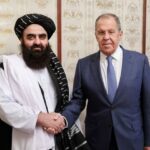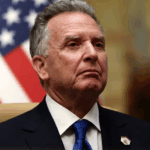Calls for a ceasefire in Ukraine around Easter 2025, particularly from the United Nations and international humanitarian actors, were intended to pause hostilities during the Orthodox holiday and facilitate humanitarian access. The proposal, supported by Washington and key European allies, was swiftly and violently disregarded by the Kremlin, with Russian forces launching drone and missile attacks on Ukrainian cities during the Easter weekend.
I. The Easter Ceasefire Proposal and Its Collapse
- The UN and several Western capitals backed a proposed ceasefire for Orthodox Easter (April 20–21, 2025).
- The goal was limited: allow for civilian evacuation, delivery of aid, and pause in hostilities for observance of a religious holiday shared by both Russians and Ukrainians.
- U.S. and EU officials, as well as Pope Francis and Patriarch Bartholomew, supported the proposal.
Outcome
- Russia responded with a wave of drone and missile attacks, particularly targeting Kharkiv, Odesa, and energy infrastructure in central Ukraine, within hours of Easter services.
- Moscow justified its actions as “military necessity”, alleging Ukraine was preparing counter-offensives during the ceasefire period.
II. Why Russia Violated the Ceasefire
1. Strategic Calculations Over Humanitarian Norms
- Russia views ceasefires not as trust-building mechanisms, but as potential threats if they allow Ukraine to regroup.
- The Kremlin believes pauses in combat benefit the defender—in this case, Ukraine—allowing reinforcement, movement of equipment, and tactical repositioning.
2. Psychological Warfare and Message Control
- By violating the ceasefire on a sacred religious holiday, Russia sought to:
- Undermine morale in Ukraine.
- Demonstrate defiance toward Western diplomacy.
- Signal to internal audiences that Russia’s will is unshakable, even during “holy” periods.
3. Rejection of Western Mediation
- The Kremlin increasingly equates UN proposals with Western interests, viewing them as pressure tools rather than neutral diplomacy.
- Moscow sees ceasefire agreements promoted by Washington or Brussels as indirect attempts to slow or freeze Russian advances.
III. Consequences of the Ceasefire Violation
1. Diplomatic Isolation and Erosion of Russian Credibility
- The Easter violation further deteriorates Moscow’s image in neutral and Global South countries, particularly among religious institutions and humanitarian actors.
- It reinforces the perception that Russia cannot be trusted in negotiations, weakening future chances for dialogue.
2. Hardened Western Policy Response
- The U.S. and EU announced new military aid packages immediately after the ceasefire breach, interpreting the attacks as a signal that diplomacy has failed.
- Washington may now abandon the pursuit of humanitarian truces, focusing instead on sustained military deterrence.
3. Ukrainian Resolve and Regional Support
- President Zelenskyy cited the violation as proof that “Putin understands neither God nor peace”, strengthening domestic and international support for continued resistance.
- Central and Eastern European nations (Poland, Baltic states) are increasingly calling for offensive weapons delivery, including long-range missiles and F-16s.
IV. Has Russia Ever Honored a Ceasefire? A Historical Perspective
While Russia has engaged in multiple ceasefire agreements, few have been upheld in practice. Historical patterns show:
1. Georgia (2008)
- Russia signed a ceasefire brokered by France but did not withdraw its troops from Abkhazia and South Ossetia, violating the spirit of the agreement.
2. Syria (2016–2020)
- Russian-backed ceasefires were repeatedly used as smokescreens for regrouping and launching new offensives, particularly in Aleppo and Idlib.
3. Ukraine (2014–2021 – Minsk I and II)
- Russia violated both Minsk agreements, using them to:
- Delay Western response.
- Build up separatist forces.
- Create political leverage.
In nearly every case, Russia has treated ceasefires as tactical pauses rather than commitments—often violating them within days or even hours.
V. Why Washington Hoped for the Ceasefire
1. Humanitarian Imperatives
- The U.S. genuinely sought to alleviate civilian suffering, particularly in front-line cities like Avdiivka and Kharkiv, which have faced mass displacement and infrastructure collapse.
2. Testing Russia’s Diplomatic Posture
- The Biden administration saw the Easter ceasefire as a low-cost litmus test:
- Would Russia respect humanitarian norms?
- Is there any space for confidence-building measures?
3. Signaling to the Global South
- Washington also hoped to show moral contrast with Moscow, appealing to nations in Africa, Latin America, and Asia by highlighting Russia’s rejection of religious and humanitarian diplomacy.
Russia’s violation of the Easter ceasefire in Ukraine was a calculated act—consistent with its long-standing pattern of treating truces as strategic tools rather than good-faith agreements. The consequences are both moral and strategic: deepening mistrust, accelerating Western support for Ukraine, and narrowing the path to future diplomacy.
For Washington, the violation serves as confirmation that Putin’s regime remains impervious to humanitarian appeals, even those grounded in shared cultural and religious values. The international community must now reassess the viability of ceasefires with a belligerent actor that sees compassion as weakness and holidays as opportunities for escalation.
1. Russian Domestic Narrative and Propaganda Framing
- How the Kremlin framed the ceasefire domestically is critical:
- Russian state media likely portrayed the Western-backed truce as a “trap” or propaganda ploy” by Ukraine and NATO.
- This could show how internal propaganda justifies international norm-breaking to a domestic audience.
- Adding quotes or narratives from Russian outlets (e.g., TASS, RT) can expose how ceasefire violations are spun internally to maintain public support.
🌍 2. Religious and Symbolic Significance of Easter
- Dig a bit deeper into why violating a ceasefire during Orthodox Easter is particularly egregious:
- Easter is not just a religious holiday—it’s deeply tied to identity in both Russia and Ukraine.
- Moscow’s disregard could be interpreted as a rejection of pan-Orthodox unity or even a manipulation of faith for war purposes.
- You might contrast this with Patriarch Kirill’s position—or his silence—to underscore how the Russian Orthodox Church is complicit or co-opted.
3. Legal and Normative Implications
- Briefly touch on how Russia’s actions undermine international humanitarian law:
- The Easter ceasefire could be considered a “special agreement” under the Geneva Conventions.
- Its violation reinforces a pattern of contempt for rules of war, which may influence future war crimes accountability efforts.
4. Russian Military Logic: Escalate to De-Escalate
- Place the ceasefire violation into Russia’s broader military doctrine:
- The idea of “escalate to de-escalate”—launching tactical escalations to control the diplomatic tempo—may apply here.
- Violating the ceasefire could be Moscow’s way of signaling strength before upcoming negotiations or arms shipments to Ukraine.
💬 5. Reactions from Allies and Rivals
- Include a short section summarizing international reactions:
- Strong condemnations from NATO, the EU, and possibly Turkey or Israel could be cited to highlight diplomatic costs.
- Did China or India comment—or remain silent? That’s worth noting too.
Optional Bonus Section: Future of Ceasefires in the War
- Based on Russia’s record and this latest violation, you could conclude with a forward-looking assessment:
- Are future ceasefires doomed?
- What kind of conditions would be necessary for a credible and enforceable truce?
Could third-party monitoring (e.g., OSCE or UN) be revived?




